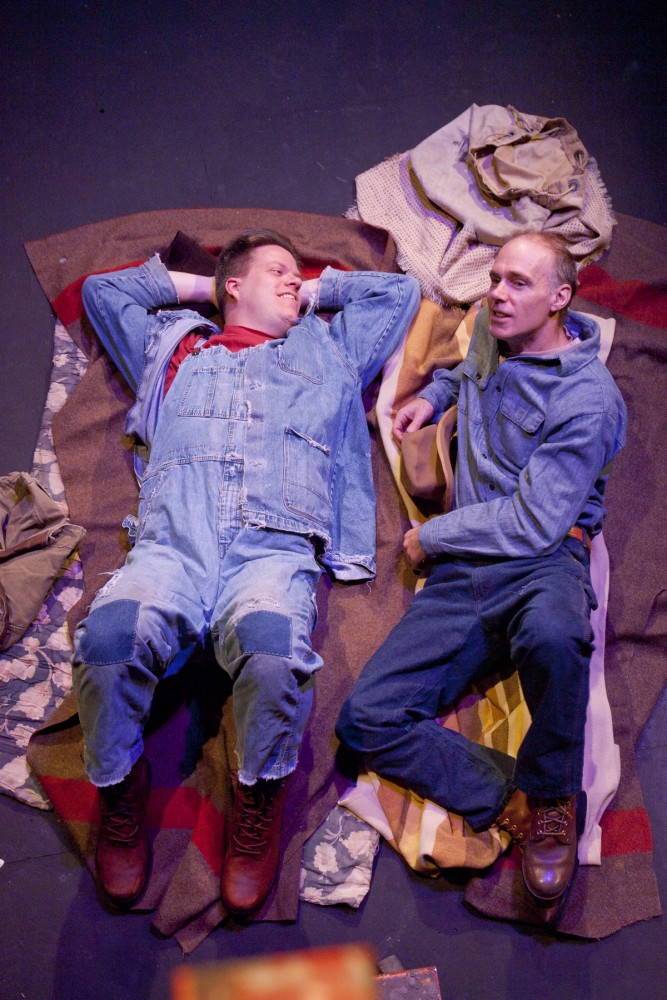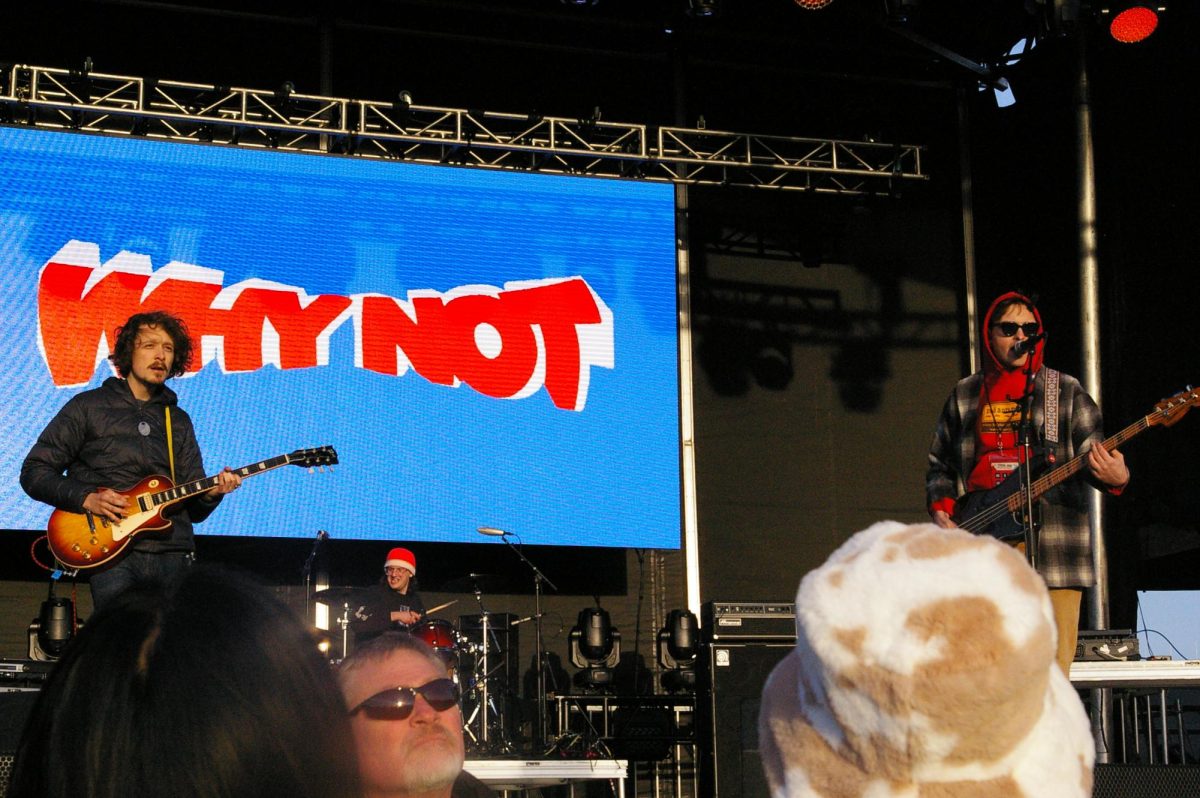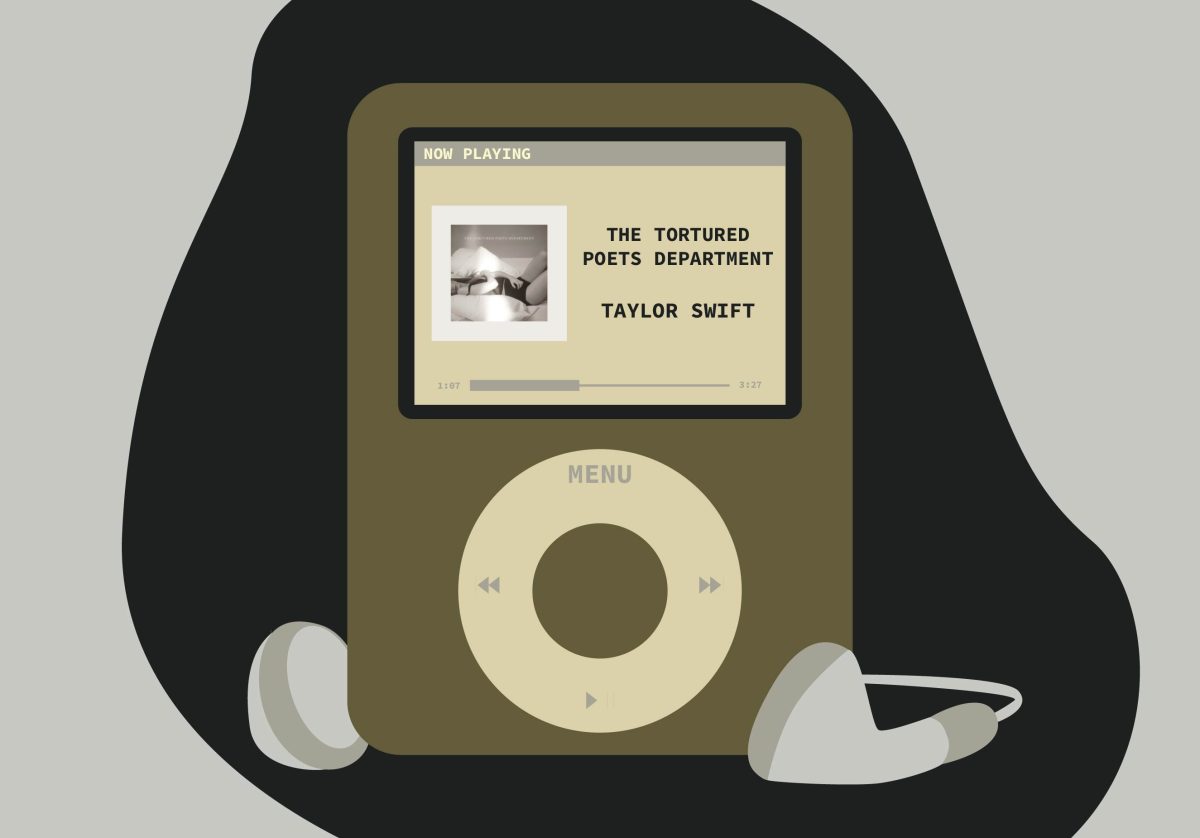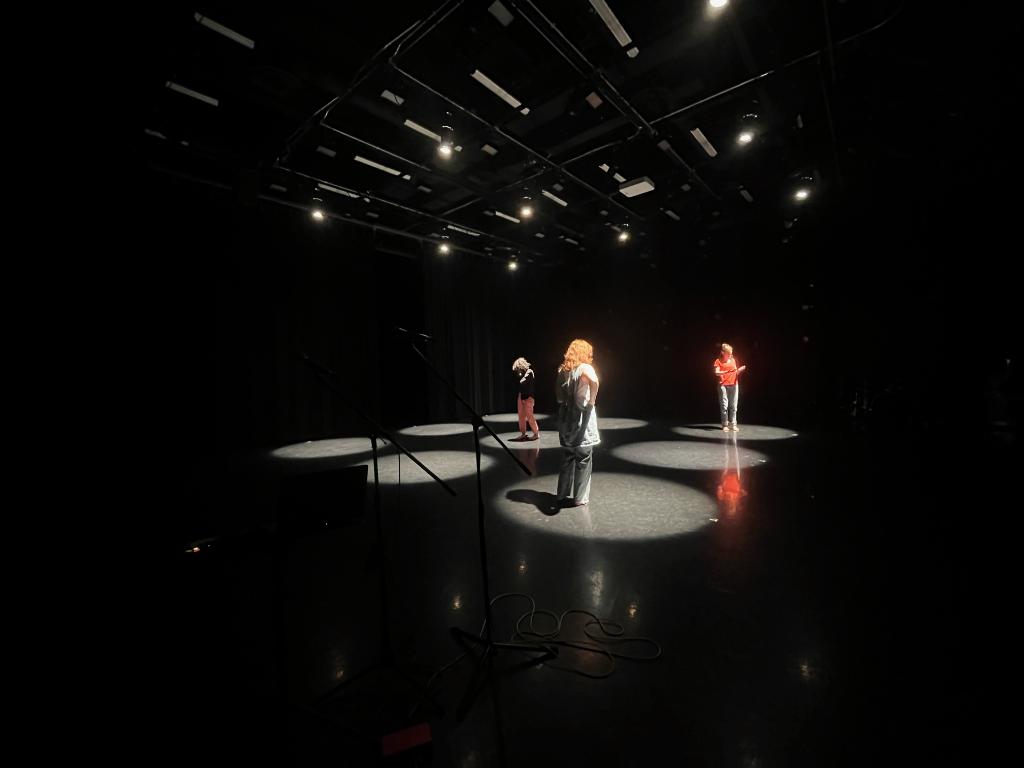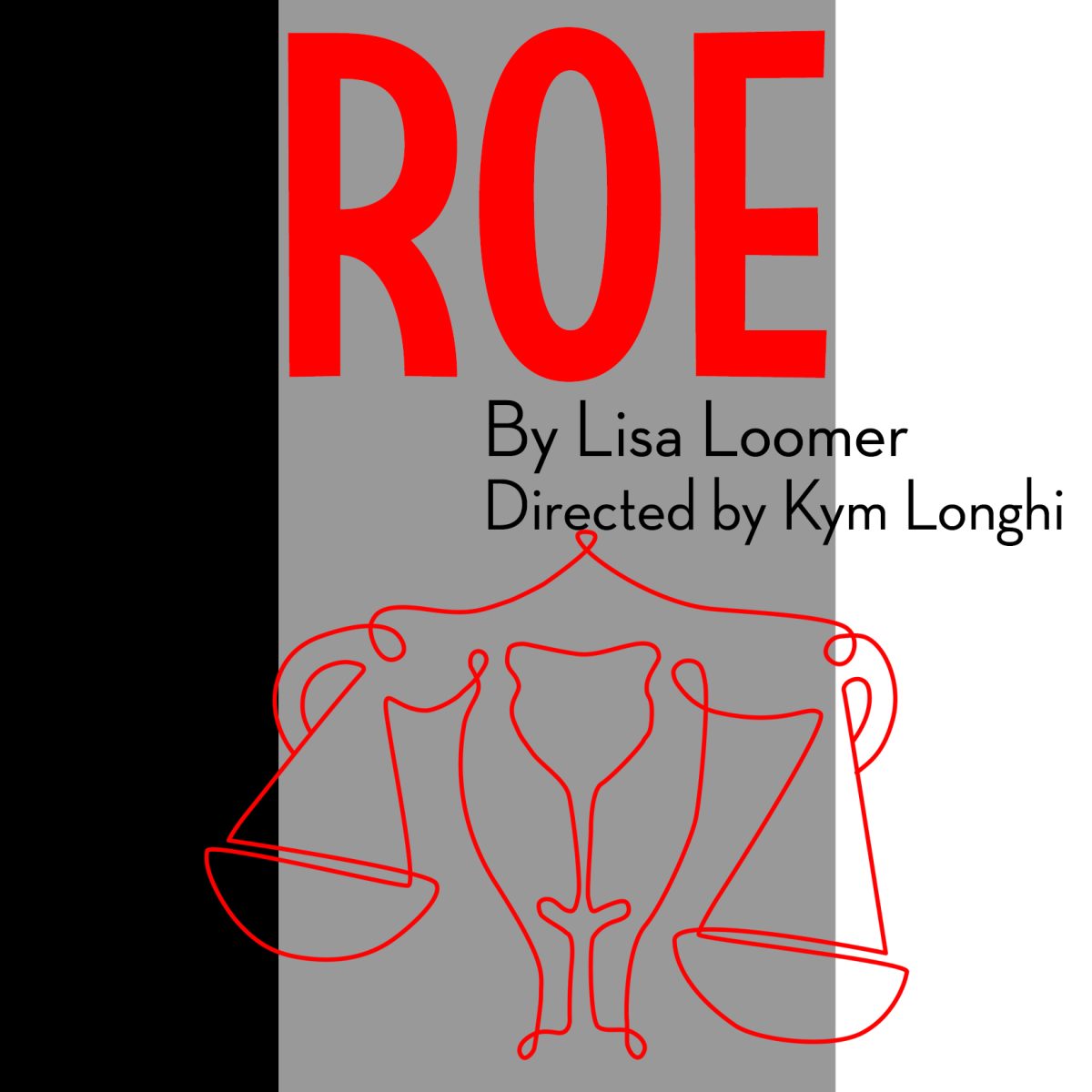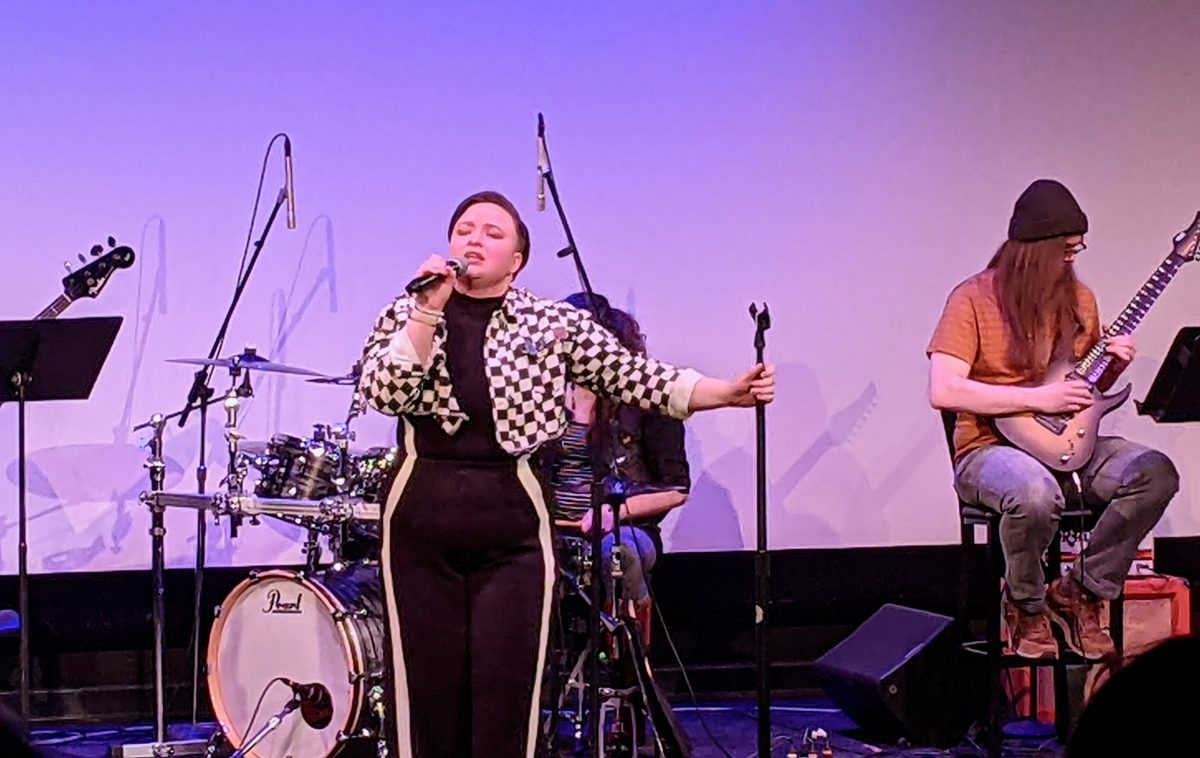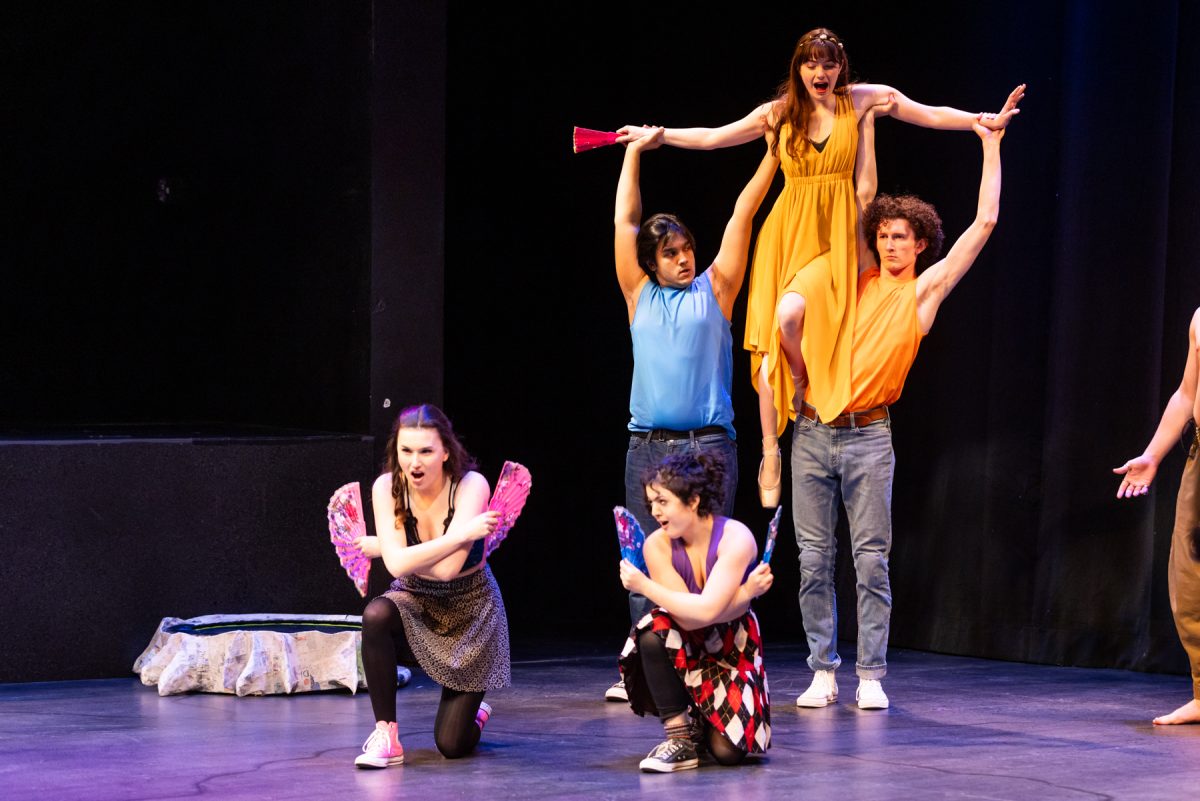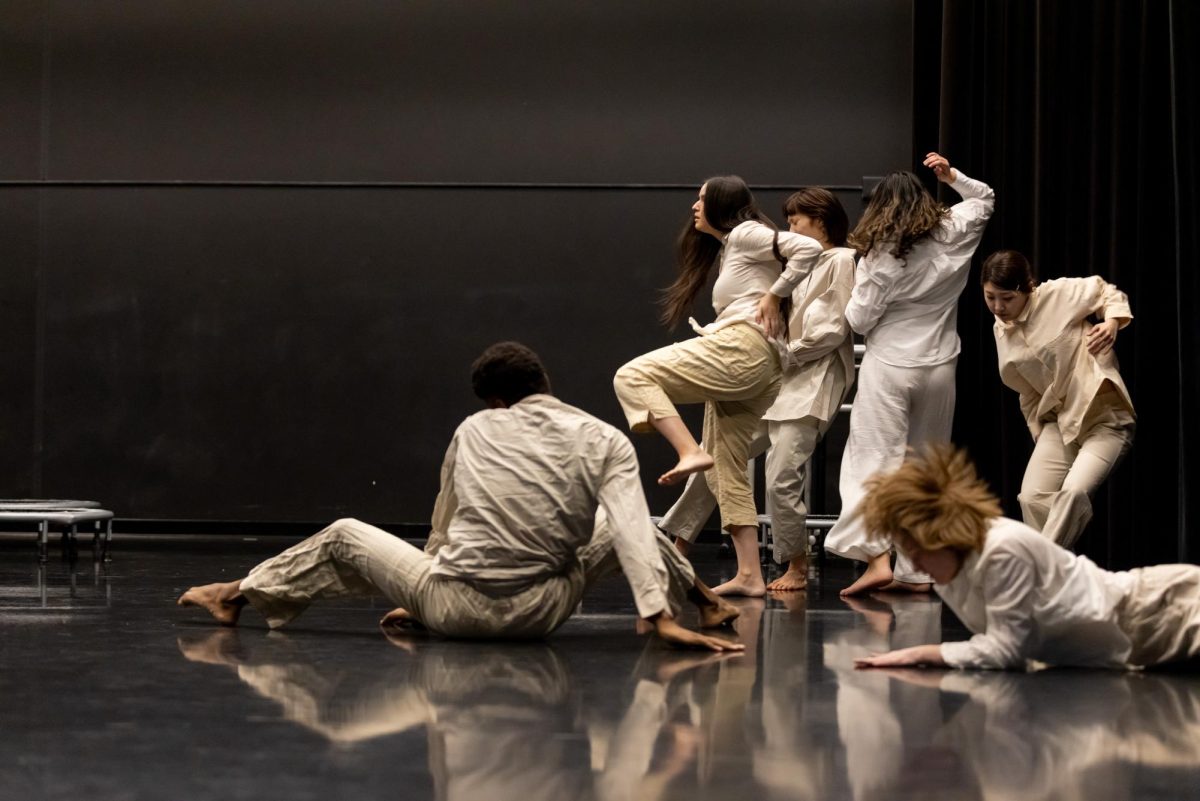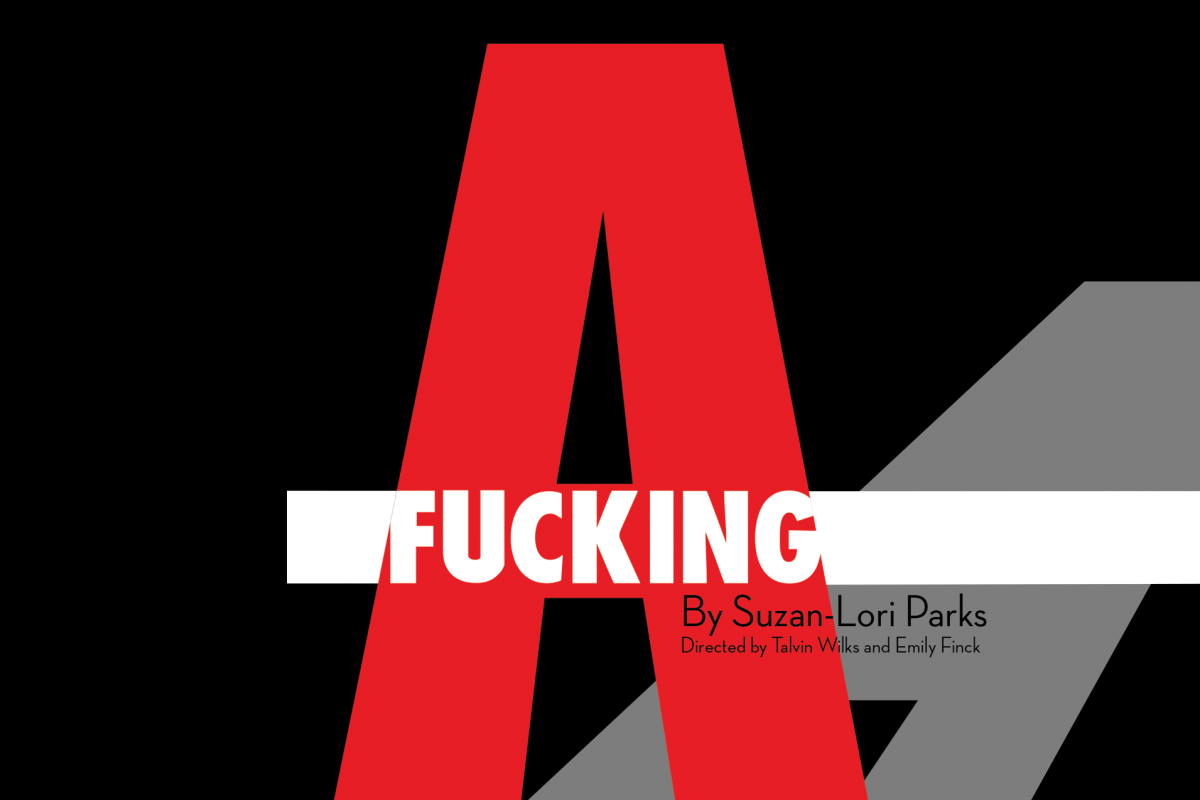What: âÄúOf Mice and MenâÄù by John Steinbeck, directed by Richard Cook
When: 7:15 p.m., tonight and tomorrow, 2 p.m., Sunday
Where: Park Square Theatre, 20 W. Seventh Place, St. Paul
Cost: $4 with Play Pass available at Coffman Union with student I.D.
Besides his name, the only thing small about Lennie Small is his limited mental capacity. The lumbering, oafish physicality opposite his best friend George Milton results in unintended conflict for the duo in âÄúOf Mice and Men.âÄù At one point, Small inadvertently breaks a womanâÄôs neck, and Milton must rely on his wit to protect his friend.
But John SteinbeckâÄôs 1937 parable also leaves characters like Milton facing all kinds of life-and-death decisions. While SmallâÄôs lackadaisical fantasies of stroking soft rabbits perpetually offer dreamy meditations of the future, Milton must decide whether to take action in light of SmallâÄôs constant mishaps.
Steinbeck crafted a second version of the iconic tale for Broadway in 1939 after writing the novella as a story that could be both performed and read as a novel. The stark realism lends especially well to stage interpretations of the play âÄî iconic characters like Small and Milton become living testaments to a generationâÄôs hardships. Now in his third year performing the play, Park Square Theatre director Richard Cook explains the novellaâÄôs increasing relevance.
The Nobel Prize-winning novelist also known for âÄúEast of EdenâÄù and âÄúThe Grapes of WrathâÄù relays direct experience as a bindlestiff. In a 1937 interview with The New York Times, Steinbeck said he based Small off of a real person he worked with. And when the real-life Small became distraught after a boss fired his friend, he stabbed the boss in the stomach with a pitchfork.
âÄúI think his insights and his curiosity about the challenges that a truly diverse nation creates for itself are probably more tangible today âÄî in some ways he was ahead of its time that way,âÄù Cook said.
Economic and social barriers limit the lives of characters like Crooks in âÄúOf Mice and Men,âÄù a black stable-hand who works with an injured back. The assortment of migrant workers like Crooks continually reinforces the groupâÄôs weak grasp of the future. Warren Bowles, who plays Crooks, finds a fusion of characters that is incredibly telling of SteinbeckâÄôs human sensibilities.
âÄúWhen you hear them talk about their living situations where they always have to fear threats, they have to fear violence, they have to fear thefts âÄî these men are thrown together by necessity,âÄù Bowles said. âÄúItâÄôs not a merry band of brothers.âÄù
With more than 40 yearsâÄô experience in theater and a masterâÄôs degree from the University of Minnesota, Bowles adds a thorough knowledge of classic works to Park Square TheatreâÄôs adaptation alongside meaningful personal ties to SteinbeckâÄôs story. Bowles was born and raised in the southwestern United States and uses his family as a frame of reference in playing Crooks.
âÄúI can see the types of people and situations that my parents and certainly my grandparents had to deal with,âÄù Bowles said.
BowlesâÄôs parentsâÄô and grandparentsâÄô generation exuded a survival mentality synonymous with life for many during the Depression. The radically opposed characters in âÄúOf Mice and MenâÄù share desperation but also hold out slivers of hope, ultimately lost amid SteinbeckâÄôs austerity.
âÄúThat sense of the âÄòAmerican DreamâÄô has pretty much always been an illusion thatâÄôs been hung out there, but people donâÄôt get it. ThatâÄôs what Crooks says, âÄòEveryone has a little piece of land in his head âÄî not a goddamn one of âÄòem gets it,âÄôâÄù *******Bowles said.
MiltonâÄôs final act in the story represents the timeâÄôs chaotic fear. Actor Terry Hempleman continues to explore the characterâÄôs internal mystery with his third performance as Milton. His troubling act concluding the play lies at the core of SteinbeckâÄôs classic as he shoots Small in the back of the head as he regales him with another fantasy.
âÄúI recognize [âÄòOf Mice and MenâÄô] as something from the world, but I donâÄôt completely understand it and so I think thatâÄôs one of the hallmarks of a good play,âÄù Hempleman said. âÄúItâÄôs a little bit inscrutable and itâÄôs affecting.âÄù
The ultimate act forces audience members to cope with SmallâÄôs loss, an attempt to reason MiltonâÄôs violent act. Love becomes the reason for such an extreme ending and this struggle to accept MiltonâÄôs realistic mindset opens discussion of a generationâÄôs destitution.
âÄúThey all have and strive to protect a certain little dominion in which they have power, but they are all very vulnerable to lose that power,âÄù Bowles said.
âÄúThe parallels are a little distressing, actually, because some of this is a little too current and it shouldnâÄôt be, but it is,âÄù Cook said.










